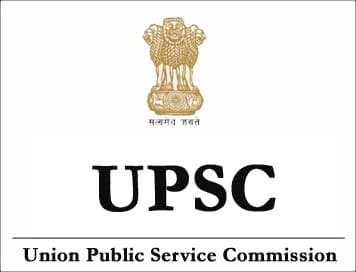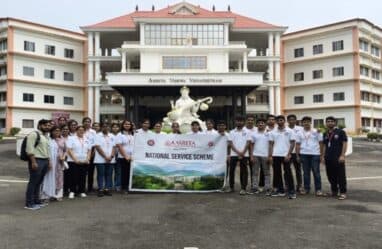Exam pattern for EPFO recruitment out

Exam pattern for EPFO recruitment out – Candidates who have applied for UPSC EPFO about and Enforcement. These posts are permanent and come under Level-8 in the pay matrix as per 7th CPC, General Central Service Group ‘B’, Non-Ministerial. The officers are liable to be posted anywhere in India.
The total number of vacancies for the above posts is 42 recruitment exam for the post of Enforcement and Accounts Officers have information they must make note of. Union Public Service Commission recently undertook registration for the recruitment of above posts.

Exam pattern for EPFO recruitment out

Exam pattern for EPFO recruitment out
The written test will have multiple choice questions for 100 marks, duration to answer the questions is two hours. The interview will have 100 marks. The candidates must have minimum level of suitability in interviews, whether they are selected through an interview or through a written test and an interview.
Exam pattern for EPFO recruitment out – Category wise minimum suitability in interviews is 50 marks for Unreserved Category, 45 marks for OBC, 40 marks for SC, ST and PH. If the candidate is selected through a written test and an interview, he or she must have minimum suitability in written test and interview. The minimum suitability with regards to written test will be determined by UPSC on case to case basis. The written test syllabus is as follows

General English
English language and Grammar including topics like Vocabulary Usage, Synonyms, Antonyms, Grammar Usage, Comprehension.
Indian Freedom Struggle
Revolt of 1857 – First War of Independence Against British, Causes of the Rise of Indian National Movement, Indian Nationalism – The Moderate Phase, Morley-Minto Reforms; Partition of Bengal 1905, Indian National Movement – Extremist Period, Important Indian Freedom Fighter, Revolutionaries in the Indian Freedom Movement.
Exam pattern for EPFO recruitment out – The Rise of Gandhi in Indian Freedom Struggle, The Rowlatt Act and the Jallianwala Bagh Massacre, The Lucknow Pact, 1916, Non-Cooperation Movement, Home Rule Movement, Salt Satyagraha, Moplah Rebellion of 1921, Simon Commission, Swaraj Party, Gandhi-Irwin Pact, First Round Table Conference 1930, Poona Pact, Cripps Mission, Quit India Movement, Indian National Congress Sessions, Indian Independence Act 1947

Current Events and Developmental Issues
Current Affairs (National & International), Sports, Awards and their importance, Politics, Finance and Banking sector, Population Census, Important Books and their writers, State Animals and Symbols, Name of the Scientist who got Noble prize for important discoveries, Important Days, Important Inventions and their inventors
Indian Polity & Economy
Supreme Court, Meaning of Write, Election of President and his functions, Important constitution bodies like CAG, Facts about parliament, Fundamental Duties, Governor and his functions, State legislature, Major Constitutional amendments and their importance, Official Language, Emergency provisions, National political parties and their symbols
General Accounting Principles
Separate Entity Concept, Money Measurement Concept, Going Concern Concept, Dual Aspect Concern, Realisation Concept, Cost Concept, Accounting Period Concept, Matching Concept,
Conservatism, Consistency, Full Disclosure, Materiality
Industrial Relations & Labour Laws
Constitution of India: workers’ provisions, Laws for Female workers – Maternity Benefit Act, Vishaka Case, Factories Act, Equal Remuneration Act, Labor Laws in India – Trade Union Act, Minimum Wages Act, Strikes and lockouts, Industrial Disputes Act (IDA), Labour Courts, Industrial Tribunals, Workman’s Compensation Act, Employees State Insurance Act, Retirement Benefits, Emigration Act, Unorganised Labour.


International Labour Organisation (ILO), Ministry of Labour in India – Important OFFICES/institutes with Labour Ministry, Work done by offices with labour ministry, Chief Labour Commissioner, Labour Bureau, Welfare Commissioners, Employees’ State Insurance Corporation (ESIC), Employees’ Provident Fund Organisation (EPFO), Board of Arbitration
General Science & Knowledge of Computer applications
Biology- Important and Interesting facts about human body parts, Nutrition in Animals and Plants, Diseases and their causes like Bacteria, Physics – S.I. units, Motion, Sound, Light, Wave, Energy, Electricity, Chemistry – Chemical Properties of Substance and their uses, Chemical Name of Important substances like Plaster of Paris.
Exam pattern for EPFO recruitment out – Chemical Change and Physical Change, Properties of Gases, Surface Chemistry, Chemistry in Everyday life, Daily Science, Development of computers, Input and Output Devices, Memory, MS Office, Internet
General Mental Ability & Quantitative Aptitude
General Mental Ability – Sequence of figures, Series, Blood Relations, Directions, Syllogism, Seating Arrangement, Puzzle Test, Statement and Conclusion, Statement and Inferences, Data sufficiency Quantitative Aptitude – Algebra, HCF and LCM, Average, Mixtures and Alligation.
Ratio and Proportion, Partnership, Percentage and its application, Simple Interest, Compound Interest, Profit and Loss, Time and Work, Time, Speed and Distance, Problems Based on Ages, Calendar and Clock, Probability, Permutations and Combinations
Social Security in India
Status of Social security in India, Social security schemes for Unorganised Sector, New Social Security Schemes launched covering social insurances like Pension, Health Insurance and Medical Benefit, Disability Benefit, Maternity Benefit, Gratuity; Employees’ Provident Fund Organization (EPFO) and the Employees’
State Insurance Corporation (ESIC), Atal Pension Yojna (APY); Pradhan Mantri Jeevan Jyoti Bima Yojana (PMJJBY), Pradhan Mantri Suraksha Bima Yojana (PMSBY), Pradhan Mantri Kisan Samman Nidhi (PM-KISAN) Yojana, Pradhan Mantri Kisan Mandhan Yojana
Interview
Exam pattern for EPFO recruitment out – Candidates must carry their matriculation certificate, qualifying exam mark sheets and pass certificates. Candidates like ex-serviceman, central and Union Territory Government employee who claim age relaxation must have the required certificates documents with regards to age relaxation.

S Vishnu Sharmaa now works with collegechalo.com in the news team. His work involves writing articles related to the education sector in India with a keen focus on higher education issues. Journalism has always been a passion for him. He has more than 10 years of enriching experience with various media organizations like Eenadu, Webdunia, News Today, Infodea. He also has a strong interest in writing about defence and railway related issues.






